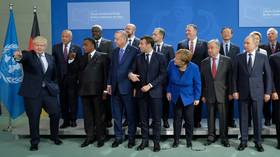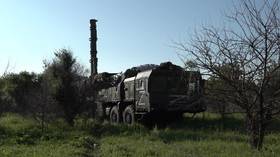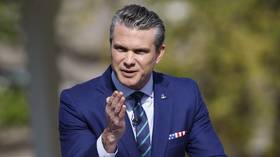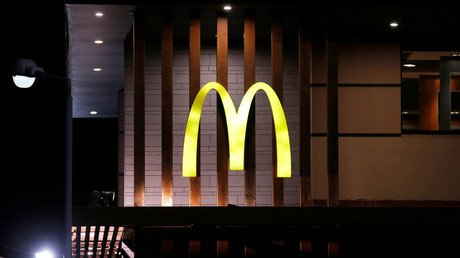FDA to use aborted fetus parts to breed ‘humanized mice,’ pro-life lobby outraged
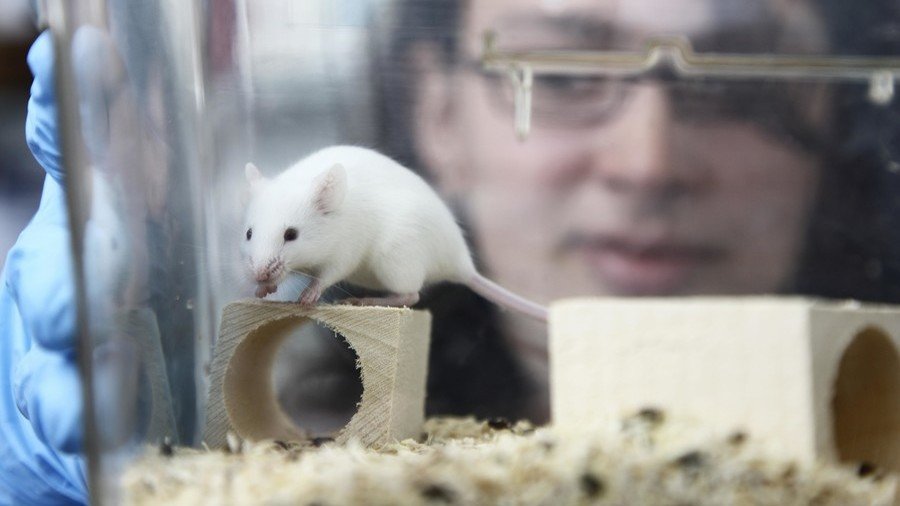
In a headline that reads like the darkest nightmares of the pro-life lobby, the US Food and Drug Administration is using tax dollars to buy aborted fetus parts to breed ‘humanized mice’ for experiments.
According to FDA documents, the agency intends to acquire “fresh” human fetal tissue from Advanced Bioscience Resources, a California-based non-profit that specializes in sourcing human tissue for scientific research.
According to ABR, this tissue is obtained from first- or second-trimester abortions, as well as full-term stillbirths. The non-profit company offers clients bespoke services, allowing them to specify “tissue characteristics, preservation methods, and delivery times.”
Under its latest contract with ABR, the FDA will purchase $15,900 worth of fetal tissue. The agency has been purchasing such tissue from ABR for several years, as it continues its research into developing humanized mice – lab mice with human immune systems.
By removing a mouse’s bone marrow and implanting human thymus and liver tissue, human stem cells can then be introduced, and will be used by the mouse to form a functioning human immune system. These mice can then be used to test the adverse effects of drugs on the human immune system.
The pro-life lobby has accused the FDA of using tax dollars to fuel a demand for fetal tissue. They argue that, as its experiments need a constant supply of fresh tissue, the FDA has a vested interest in the continuation of legalized abortion.
“Under no circumstances should the US government be contracting with baby-parts dealers like ABR – who have partnered with abortion giant Planned Parenthood – or taxpayers be forced to fund such atrocities,” said Marjorie Dannenfelser, president of the pro-life Susan B. Anthony List group. “We call on Congress to… stop taxpayer funding of these repugnant practices and act swiftly to ban them altogether.”
“Every part of this transaction is a tragedy. A woman is driven to abort her baby, too often by coercion or abandonment, and there in the shadows is a government contractor waiting to tear apart the baby’s body to deliver pieces in exchange for payment,”added Cathy Ruse of the Family Research Council, another anti-abortion group.
The tissue business
Human stem cells divide rapidly and adapt easily to new environments, making them ideal for a wide range of research applications. In acquiring the tissue, however, agencies like the FDA run into a problem: federal law prohibits the sale or trade of fetal tissue for profit, and donations from hospitals and university labs are unreliable.
Since 2010, a number of ‘tissue brokers’ have stepped in to play middleman between abortion clinics and scientists. ABR denies charging money for the fetuses, but its own documents say that it pays clinics “a nominal fee” for the remains, and charges the FDA and other clients a markup for the service.
The FDA has had contracts with ABR since 2009, and has attracted controversy along the way. A heavily edited undercover video filmed by anti-abortion activists in 2015 appeared to show a Planned Parenthood director talking about profiting from selling fetus parts to a tissue broker.
A congressional investigation that followed found that ABR paid Planned Parenthood between $45 and $60 per specimen, and charged researchers between $340 and $550, depending on processing costs.
Planned Parenthood denies profiting from the transactions. When contacted by a pro-life journalist, the FDA stated that its research is “conducted responsibly, conforms with all legal requirements, and meets the highest ethical standards.”
The agency added that ABR has provided assurances that it complies with all legal requirements, but noted that where ABR sources its tissue is not the FDA’s business. ABR did not respond to a request for comment.
In June, a federal judge refused to order Planned Parenthood to turn over documents showing the income allegedly generated by selling human tissue. The 2015 video and subsequent congressional report had been cited by anti-abortion activists as evidence that the family-planning organization was engaged in the trafficking of human body parts.
President Donald Trump has spoken out against Planned Parenthood throughout his campaign and first year in office, but signed a spending bill in March that continued to fund the organization. Last December, the Justice Department requested documents from a Senate investigation of Planned Parenthood, but said no more on whether it was actively investigating its alleged role in the tissue trade.
Think your friends would be interested? Share this story!







